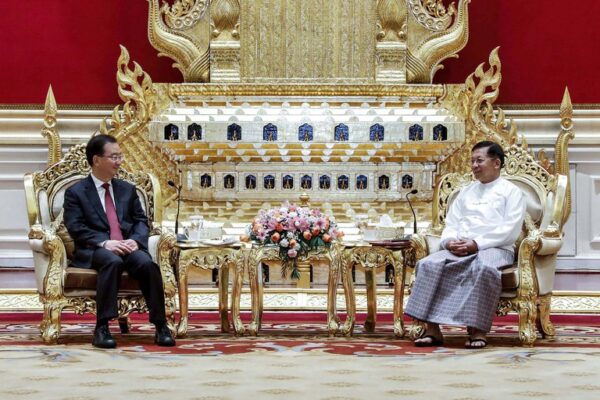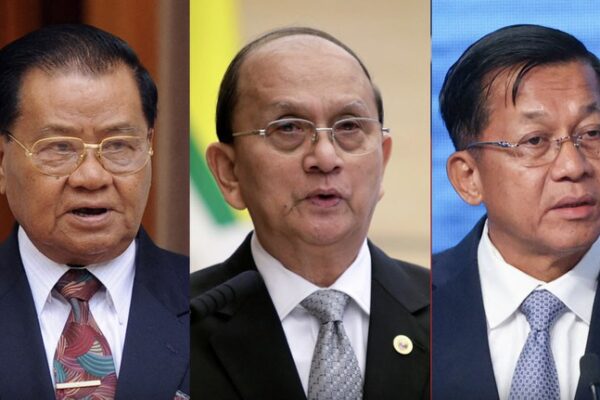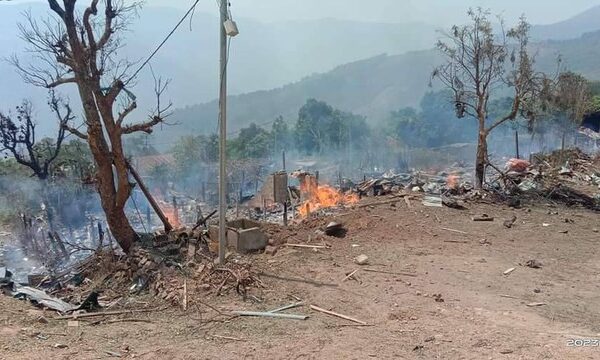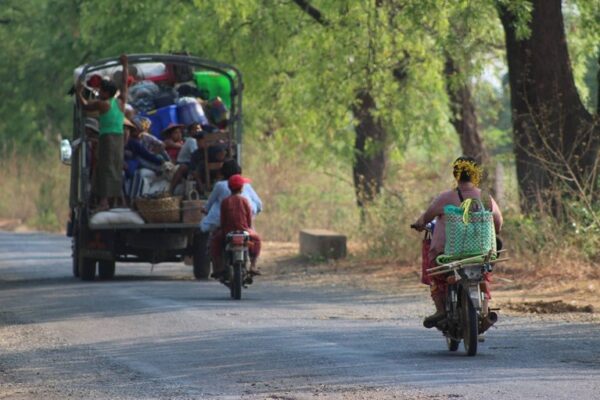UN working group issues opinion on detention of Vietnamese political prisoner
A U.N. Human Rights Council working group has issued an opinion on the case of a Vietnamese activist arrested in 2021 and sentenced to 10 years in prison for “anti-state propaganda,” saying that his detention was arbitrary. Do Nam Trung, 41, was sentenced in December 2021 to 10 years in prison for “spreading materials against the state” under Article 117 of Vietnam’s Penal Code, frequently used by authorities to restrict freedom of expression and opinions deemed critical of Vietnam’s one-party communist state or government leaders. The activist is known for his work promoting freedom of expression, human rights and democracy in the Southeast Asian county. Trung had participated in several social movements and had spoken out against official corruption in posts on his Facebook page. He also had posted criticisms of the build-operate-transfer highways that Vietnam has adopted in recent years, sparking rare protests over toll collections that many motorists deemed unfair. Authorities arrested Trung in July 2021 in Hanoi while driving to work. At the time, about two dozen police officers searched his home, disabled internet and phone connections and confiscated memory sticks, business cards and driving licenses. In the 11-page report dated March 9 and just released publicly, the Council’s Working Group on Arbitrary Detention deemed Trung’s detention arbitrary because his “conduct falls within the right to freedom of opinion and expression protected under articles 19 of the Universal Declaration of Human Rights and the International Covenant on Civil and Political Rights.” The group also stressed that no trial should have taken place. The working group requested that the government immediately remedy Trung’s situation and bring it into conformity with relevant international norms, including those set out in the Universal Declaration of Human Rights and the International Covenant on Civil and Political Rights. It also urged Hanoi to ensure a full and independent investigation of the circumstances surrounding the arbitrary deprivation of Trung’s liberty and to take appropriate measures against those responsible for violating his rights. In June 2022, the working group asked Hanoi to provide detailed information about Trung’s situation and to clarify the legal provisions justifying his continued detention as well as its compatibility with the country’s obligations under international human rights law. The Vietnamese government requested an extension last August, but failed to submit a response by the Sept. 15 deadline. It sent a late response on Oct. 4, which the Working Group said it could not accept because it did not arrive on time. The working group has given the Vietnamese government six months to respond to the current opinion. Bottom of the list The development comes as Paris-based Reporters Without Borders issued its 2023 World Press Freedom Index, which ranks Vietnam 178 of 180 countries, falling four places from last year. The group said Vietnam, whose traditional media is controlled by the state, is the third-largest jailer of journalists. Phil Robertson, deputy Asia director of Human Rights Watch, told Radio Free Asia that the U.N. Working Group on Arbitrary Detention had done “an excellent job of rejecting all the Vietnamese government’s weak reasons for Do Nam Trung’s detention and of giving clear-cut cause for Trung’s immediate release.” “Once again, the disparity between international conventions on human rights and Vietnam’s law is fully exposed,” Robertson said in an email. “Vietnam is carrying out a widespread crackdown on political activists and completely disregarding all human rights principles. A journalist in Vietnam, who spoke on condition of anonymity for safety reasons, told RFA that authorities have subjected independent journalists and writers to fierce repression, convicting them under vaguely-worded articles under the 2015 Penal Code and under the Cybersecurity Law, which took effect in 2019. “It seems that the Vietnamese government disregards all international criticism of her human rights violations,” the journalist said. Vietnam’s permanent delegation to the United Nations in Geneva issued a response on March 24 to a November 2022 request by the Special Procedures Branch of the U.N. human rights agency concerning the arbitrary arrests of nine activists, including Trung. Authorities convicted them of propagating untruthful information and abusing the right to freedom of expression and democracy to distort and smear the government. Hanoi said the arrests, detentions and convictions complied with Vietnamese law and the country’s international human rights commitments. In January, Vietnam began a three-year term on the 47-member Human Rights Council, despite objections by human rights groups that the country should have been excluded because of its dismal rights record. Translated by Anna Vu for RFA Vietnamese. Edited by Roseanne Gerin and Malcolm Foster.








